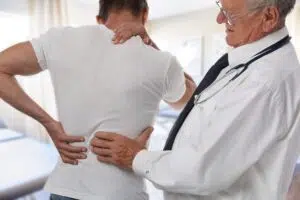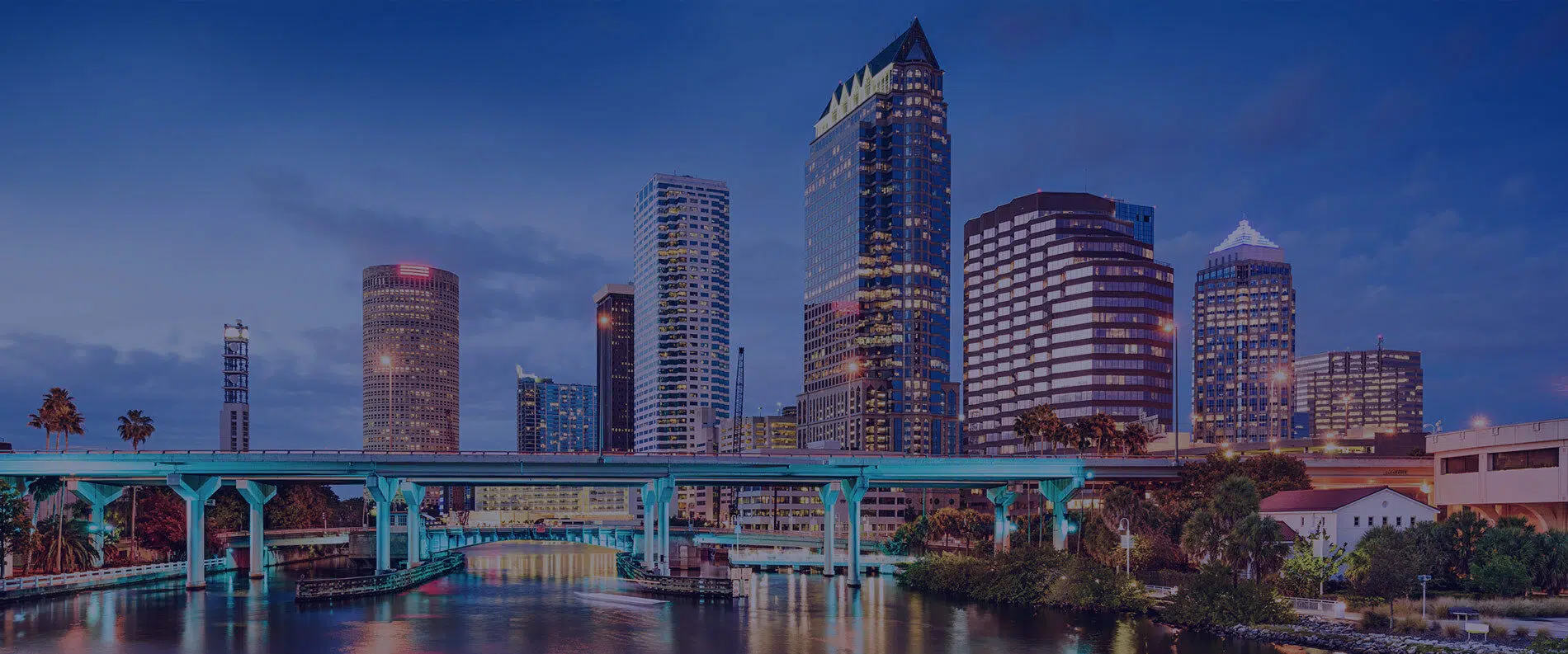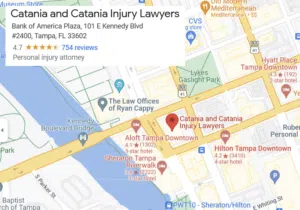
Many things can go wrong with your back after an accident. The forces involved in a slip and fall accident or car accident can fracture vertebrae, damage soft tissue, and sever or compress nerves.
The back performs many functions. It provides stability, strength, flexibility, and a conduit from the brain to the body. When an accident damages the discs, all those functions can become compromised.
Here is some information about a herniated disc injury and the compensation you can seek for it.
Table of Contents
How Does a Herniated Disc Injury Happen?

The spine includes 24 vertebrae. These bones are separated from each other by intervertebral discs. The discs cushion the vertebrae so they do not grind against each other. They also allow the spine to flex and twist.
The discs include an outer fibrous cover over a gel-like nucleus. Under normal use, the fibrous cover protects the gel. The gel provides flexibility and cushioning.
Trauma can damage the discs. Some common disc injuries include:
Herniated Disc
A disc herniates when the nucleus protrudes through the fibrous cover. A herniated disc injury can result from degeneration of the outer cover from overuse or disease. The weakened fibers can allow the interior gel to leak out.
A herniated disc can also happen when trauma causes the fibers of the cover to separate. This allows the gel to lead from between the fibers.
Doctors may also refer to a herniated disc as a “ruptured disc,” since the fibrous outer cover has ruptured and leaked.
Bulging Disc
A bulging disc can refer to a herniated disc. The gel bulges from the cover so, strictly speaking, the disc has bulged.
Bulging discs also refer to a different type of disc injury. In some situations, the fibers weaken while remaining intact. Normally, a disc has a cylindrical shape. But weakened fibers can allow the disc to bulge into a barrel shape or, worse yet, a pancake shape.
Doctors may refer to a bulging disc as a “compressed disc.” Both a bulging disc and a herniated disc might also be referred to as a slipped disc.
What Are the Effects of a Herniated Disc Injury?
Some bulging or herniated discs cause no symptoms. In minor cases, a damaged disc can cause physical symptoms such as:
- Back pain
- Loss of flexibility
- Limited range of motion
- Back instability and weakness
In severe cases, the abnormally shaped disc can press on the spinal cord. The spinal cord carries motor signals from the brain to the body. It also carries sensory signals from the body to the brain.
When the spinal cord gets pinched, the electrical signals get disrupted.
As a result, a herniated disc pressing on the spinal cord can produce some unusual symptoms far away from your back, including:
- Nerve pain in the extremities
- Numbness or tingling
- Loss of sensitivity to touch, heat, or cold
- Muscle weakness
- Paralysis
- Loss of coordination
- Loss of balance
- Loss of bladder and bowel control
The location of the herniated disc injury will determine where you might feel symptoms and their severity.
A herniated disc in the neck can produce symptoms in the head, neck, shoulders, arms, hands, and fingers. A herniated disc in the back usually affects the abdomen, hips, legs, feet, and toes.
What is the Treatment for a Herniated Disc Injury?
Doctors have a few options for treating a herniated disc injury. In many cases, doctors will not treat the disc. Instead, they will prescribe physical therapy to build up the strength in your back to relieve the pressure on your damaged disc.
If a doctor decides not to treat the herniated disc, the doctor might prescribe anti-inflammatory pain medication to help relieve the pain and swelling in your back.
In severe cases, doctors have a few surgical options, including:
Spinal Fusion
Doctors can fuse adjacent vertebrae with screws and plates. This can relieve the pressure on the spinal cord by pushing the disc back into alignment. Fusion can also strengthen the back.
However, fusion often robs the back of flexibility. It can also increase the wear of the non-fused vertebrae.
Disc Replacement
Surgeons can replace your damaged disc with an artificial disc. This surgery preserves the flexibility in your back and relieves your pain. Since disc replacement is cheaper and more effective than spinal fusion, disc replacement is growing in popularity.
Laminectomy
In a laminectomy, doctors remove part of the vertebrae. This gives the spinal cord more space and can relieve the pressure on the spinal cord from the damaged disc.
What Are the Risk Factors for a Herniated Disc Injury?
Some accidents have an increased risk of causing disc injuries, including:
Car Accidents
Car accidents cause enormous stress on the spine. In front- or rear-end collisions, the spine hyperextends at the instant of impact. It then snaps back, compressing the discs. This compression can damage the discs and cause bulging or herniation.
In side-impact collisions, the spine will curve and twist to the side. This can squeeze one side of a disc and cause it to herniate or bulge.
Falls
Falls from an elevation or slip and fall accidents can result in a spine injury. The impact of the fall can damage a disc allowing the nucleus to herniate.
Falls can also fracture vertebrae or strain back muscles. The imbalance of forces on the discs can cause them to wear unevenly and herniate.
Workplace Accidents
Workplaces pose two risk factors for disc injuries. Trauma in a workplace accident can damage a disc. Repetitive stress caused by standing, lifting, carrying, and walking can cause a disc to degenerate and herniate.
Pedestrian and Bicycle Accidents
Pedestrian accidents and bicycle accidents involve enormous forces directed into an unprotected body. Disc injuries can occur in the initial impact between the car and the accident victim. They can also occur in the secondary impact when the accident victim hits the pavement.
What Compensation Can I Recover for a Herniated Disc Injury?
Injury compensation covers your medical costs and lost income. Since a herniated disc can become a source of chronic pain, you could face ongoing medical treatment and missed work.
Florida uses a no-fault insurance system for car accidents. But Florida releases people with permanent and significant injuries from the no-fault system. This means that a herniated disc injury might provide a path for you to file a lawsuit after a car accident to recover your full damages.
Contact an Injury Lawyer for Help
To learn more about the compensation you can recover for your herniated disc injury, contact Catania and Catania Injury Lawyers at (813) 222-8656 for a free consultation. Our Tampa personal injury lawyers will explain your options and help you move forward after your injury.




